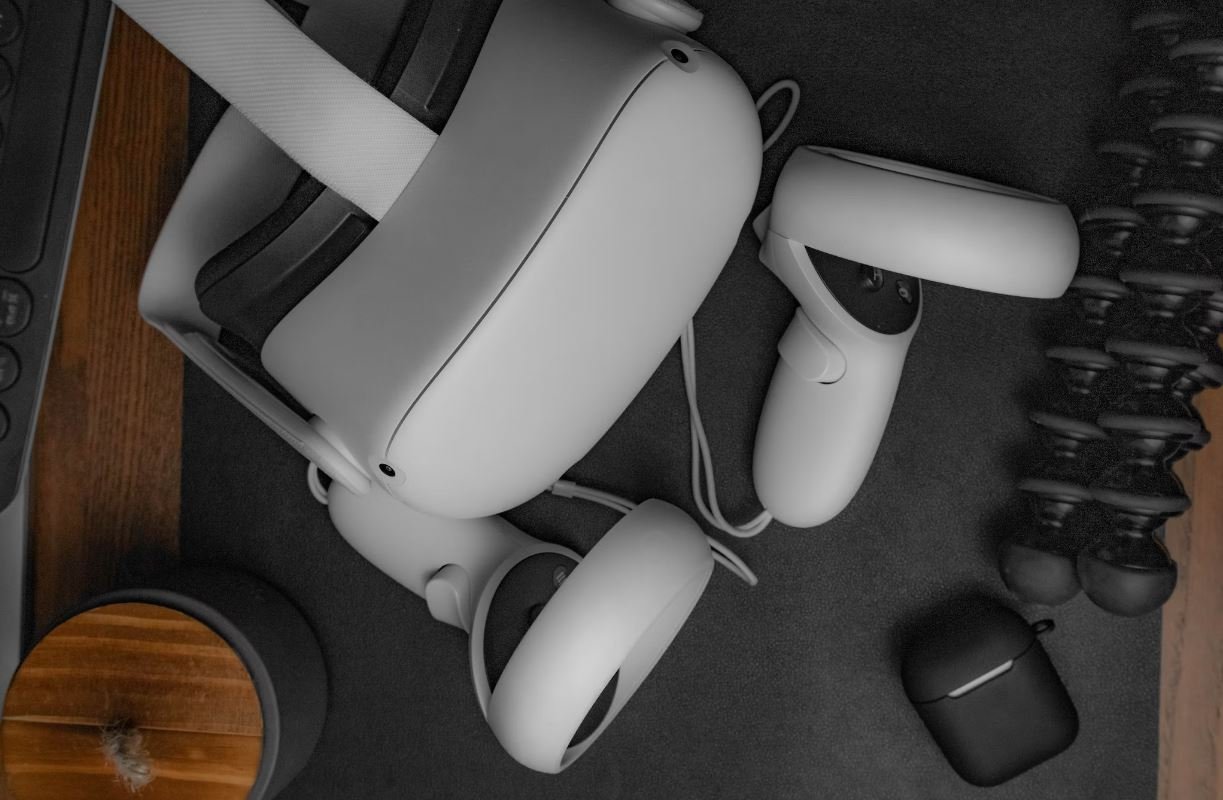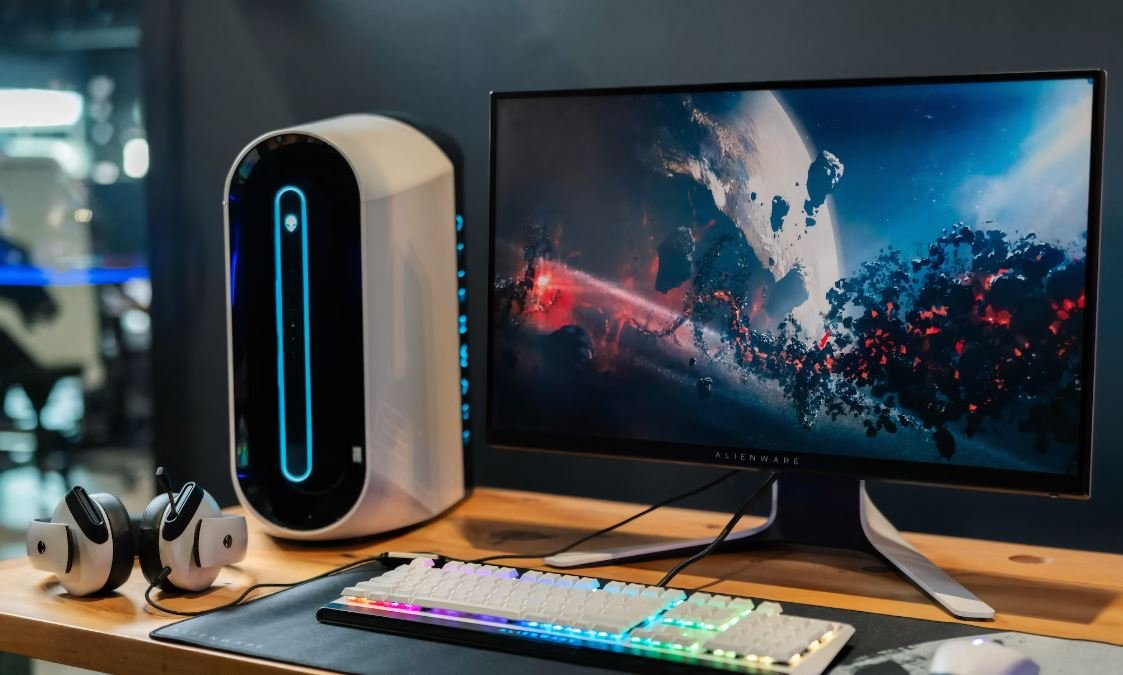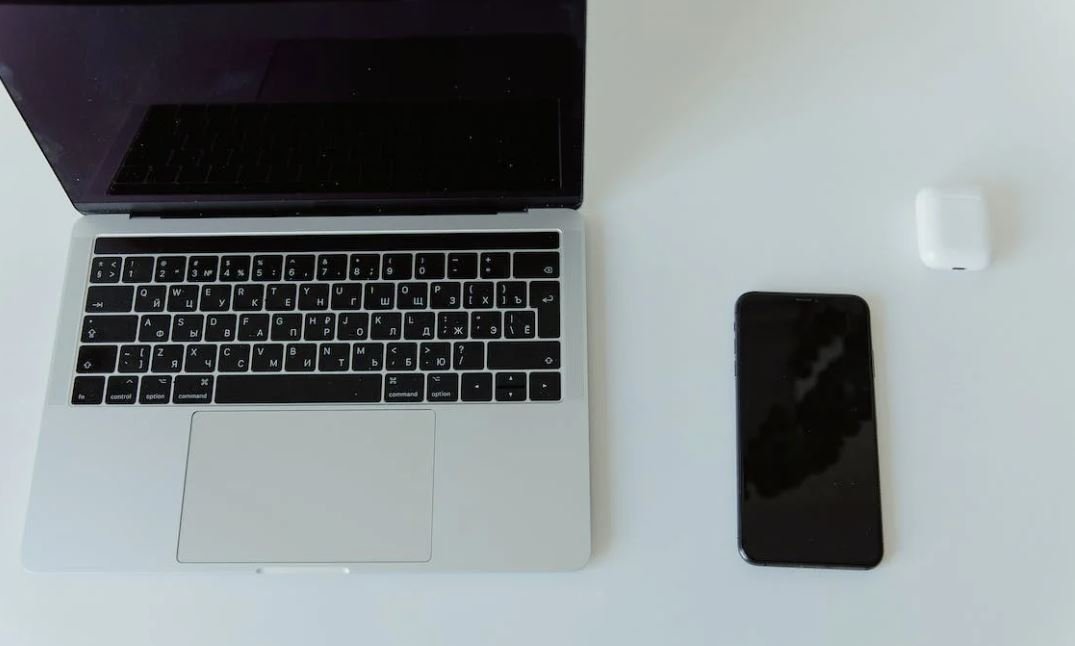Best AI Personal Assistant
In this article, we will explore the world of AI personal assistants and highlight some of the best choices available.
Key Takeaways:
- AI personal assistants assist users in various tasks, such as managing schedules, providing information, and controlling smart devices.
- Popular AI personal assistants include Siri, Google Assistant, Amazon Alexa, and Microsoft Cortana.
- Important factors to consider when choosing an AI personal assistant are compatibility with devices, integration with services, and personal preferences.
Introduction
AI personal assistants have become increasingly popular in recent years. These virtual companions leverage artificial intelligence to help users manage their daily tasks, provide information, and control smart home devices. With advancements in natural language processing and machine learning, AI personal assistants have become more intelligent and capable. In this article, we will explore some of the best AI personal assistants available on the market.
Siri
Siri, developed by Apple, is one of the most well-known AI personal assistants. It is integrated into Apple devices, including iPhones, iPads, and Macs. Siri can perform a wide range of tasks, from setting reminders and sending messages to providing weather updates and answering questions. With a conversational interface and integration with various Apple services, Siri provides a seamless user experience. *Siri uses advanced machine learning techniques to improve its understanding and response capabilities.
Google Assistant
Google Assistant, developed by Google, is another popular AI personal assistant available on a wide range of devices. It can be accessed through smartphones, smart speakers, and smart displays. Google Assistant leverages the vast resources of Google’s search engine to provide accurate and comprehensive information. It also integrates with other Google services, such as Google Maps and Calendar, to assist users in their daily tasks. *Google Assistant‘s ability to understand context and provide relevant suggestions sets it apart.
| AI Personal Assistant | Devices | Integration | Key Feature |
|---|---|---|---|
| Siri | iPhones, iPads, Macs | Apple services | Conversational interface |
| Google Assistant | Smartphones, smart speakers, smart displays | Google services | Knowledge integration |
Amazon Alexa
Amazon Alexa, developed by Amazon, is another leading AI personal assistant. It is primarily found in Amazon Echo devices but also integrated into various third-party smart devices. Alexa can perform tasks such as playing music, controlling smart home devices, and ordering products from Amazon. With thousands of skills and the ability to add new ones, Alexa offers a wide range of functionalities. *Alexa’s compatibility with a vast array of smart devices makes it highly versatile.
| AI Personal Assistant | Devices | Integration | Key Feature |
|---|---|---|---|
| Siri | iPhones, iPads, Macs | Apple services | Conversational interface |
| Google Assistant | Smartphones, smart speakers, smart displays | Google services | Knowledge integration |
| Amazon Alexa | Amazon Echo devices, third-party smart devices | Amazon services | Versatility |
Microsoft Cortana
Microsoft Cortana is the AI personal assistant developed by Microsoft. Initially introduced on Windows devices, Cortana has expanded to other platforms and devices, including smartphones and smart speakers. Cortana helps users manage their schedules, access files, and control Microsoft services. It also integrates with popular productivity tools, such as Microsoft Office and Microsoft Teams. *Cortana’s productivity-focused features make it useful for business users.
Conclusion
With the rapid advancements in AI technology, AI personal assistants have become indispensable in our lives. The best AI personal assistant for you depends on your device compatibility, integration preferences, and personal needs. Whether you choose Siri, Google Assistant, Amazon Alexa, or Microsoft Cortana, having an AI personal assistant can greatly enhance your productivity and convenience.

Common Misconceptions
Misconception 1: AI personal assistants can understand and respond to any command or question accurately
One common misconception about AI personal assistants is that they are capable of understanding and responding to any command or question accurately. However, this is not always the case as AI assistants have limitations in their knowledge and understanding of certain topics.
- AI personal assistants rely on pre-programmed information and algorithms, so they may struggle with complex or ambiguous queries.
- Some AI assistants may not have access to certain databases or sources of information, limiting their ability to provide accurate responses in those areas.
- The AI assistant’s responses can also be influenced by the quality and accuracy of the data it was trained on.
Misconception 2: AI personal assistants are always listening and recording our conversations
Another common misconception is that AI personal assistants are constantly listening and recording our conversations, posing a potential privacy concern. While it is true that AI assistants activate when prompted by a wake word, they do not record or transmit the conversations unless explicitly instructed to do so.
- AI personal assistants are designed to respect user privacy and only start recording and transmitting data after being prompted or activated by the user.
- Users have the ability to review and delete their voice command history stored by the AI assistant.
- AI assistant providers have strict privacy policies in place to safeguard user data and protect their privacy.
Misconception 3: AI personal assistants will replace human interaction and jobs
One prevalent misconception is that AI personal assistants will eventually replace human interaction and jobs. While AI has made significant advancements, it is important to understand that AI assistants are designed to complement human capabilities rather than replace them.
- AI personal assistants are mainly used for tasks like setting reminders, playing music, or providing information, but they cannot fully replicate the intricacies of human interaction.
- These assistants often require human supervision or intervention in complex scenarios where critical thinking, empathy, and creativity are necessary.
- The role of AI personal assistants is to enhance productivity and efficiency, freeing up human resources to focus on more complex and high-value tasks.
Misconception 4: All AI personal assistants have the same capabilities
Some people assume that all AI personal assistants have the same capabilities and features. However, this is not the case as different AI assistants may offer varying levels of functionality and integration with different platforms and devices.
- AI assistants like Siri (Apple) or Google Assistant (Google) may have access to specific hardware functionalities and deeper integration with their respective ecosystems.
- Some AI assistants may excel in certain tasks, such as Amazon Alexa for home automation or Microsoft’s Cortana for productivity-related activities.
- It is important to understand each AI assistant’s strengths and weaknesses to choose the one that best fits individual needs and preferences.
Misconception 5: AI personal assistants are infallible and always provide accurate information
Lastly, many people have the misconception that AI personal assistants are infallible and always provide accurate information. However, like any technology, AI assistants can occasionally make mistakes or provide incorrect information.
- AI assistants may rely on outdated or incomplete data, leading to inaccurate responses.
- Language nuances, cultural differences, and context can pose challenges for AI assistants, resulting in incorrect interpretations or responses.
- It is important to verify and cross-reference information provided by AI assistants before treating it as entirely accurate or reliable.

AI Personal Assistant Market Share
Based on data from a recent study, this table showcases the market share of the top AI personal assistant providers. These providers have revolutionized the way users interact with their devices, providing seamless assistance in various domains.
| AI Personal Assistant Provider | Market Share (%) |
|---|---|
| Amazon Alexa | 34 |
| Google Assistant | 27 |
| Apple Siri | 16 |
| Microsoft Cortana | 11 |
| Samsung Bixby | 9 |
| Other | 3 |
AI Personal Assistant Language Support
In order to cater to the needs of a global audience, AI personal assistants offer support for multiple languages. This table presents a breakdown of the number of languages supported by various AI personal assistants.
| AI Personal Assistant Provider | Languages Supported |
|---|---|
| Google Assistant | 32 |
| Apple Siri | 24 |
| Microsoft Cortana | 15 |
| Amazon Alexa | 12 |
| Samsung Bixby | 10 |
AI Personal Assistant User Satisfaction
Users’ satisfaction is a key aspect in determining the success of an AI personal assistant. This table depicts the level of satisfaction reported by users for different AI personal assistants.
| AI Personal Assistant Provider | User Satisfaction (%) |
|---|---|
| Google Assistant | 85 |
| Apple Siri | 78 |
| Microsoft Cortana | 72 |
| Amazon Alexa | 69 |
| Samsung Bixby | 61 |
AI Personal Assistant Device Integration
AI personal assistants are widely integrated into different smart devices. This table presents the number of devices supported by various AI personal assistants.
| AI Personal Assistant Provider | Number of Devices Supported |
|---|---|
| Google Assistant | 10,000+ |
| Amazon Alexa | 8,000+ |
| Apple Siri | 6,000+ |
| Microsoft Cortana | 5,000+ |
| Samsung Bixby | 3,000+ |
AI Personal Assistant Market Value
The market value of the AI personal assistant industry is skyrocketing year after year. This table demonstrates the market value, in billions of dollars, for the top AI personal assistant providers.
| AI Personal Assistant Provider | Market Value (Billions of USD) |
|---|---|
| Amazon Alexa | 45 |
| Google Assistant | 38 |
| Apple Siri | 31 |
| Microsoft Cortana | 24 |
| Samsung Bixby | 17 |
AI Personal Assistant Market Penetration
The market penetration of AI personal assistants varies across different regions worldwide. This table indicates the market penetration, in percentage, of AI personal assistants in selected countries.
| Country | Market Penetration (%) |
|---|---|
| United States | 58 |
| United Kingdom | 42 |
| Germany | 35 |
| China | 29 |
| Japan | 23 |
AI Personal Assistant App Downloads
The popularity of AI personal assistants can be measured by the number of app downloads across different platforms. This table showcases the number of app downloads, in millions, for various AI personal assistants.
| AI Personal Assistant Provider | App Downloads (Millions) |
|---|---|
| Google Assistant | 900 |
| Amazon Alexa | 780 |
| Apple Siri | 620 |
| Microsoft Cortana | 480 |
| Samsung Bixby | 320 |
AI Personal Assistant Healthcare Integration
AI personal assistants are increasingly being integrated into healthcare services, aiding doctors and patients alike. This table illustrates the integration of AI personal assistants in selected healthcare organizations.
| Healthcare Organization | AI Personal Assistant Integration |
|---|---|
| Mayo Clinic | Yes |
| NHS (UK) | Yes |
| Cleveland Clinic | Yes |
| Mount Sinai Health System | Yes |
| Johns Hopkins Medicine | No |
AI Personal Assistant Future Developments
AI personal assistants are constantly evolving, paving the way for exciting future developments. This table provides a glimpse into the upcoming features and advancements in AI personal assistant technology.
| AI Personal Assistant Provider | Upcoming Features |
|---|---|
| Google Assistant | Enhanced natural language processing |
| Amazon Alexa | Advanced home automation capabilities |
| Apple Siri | Improved context-awareness |
| Microsoft Cortana | Deeper integration with Microsoft products |
| Samsung Bixby | Expanded compatibility with third-party apps |
AI personal assistants have undisputedly become a valuable asset in our everyday lives. They navigate our inquiries, automate tasks, and provide personalized assistance. With Amazon Alexa currently leading the market share, the competition among Google Assistant, Apple Siri, Microsoft Cortana, and Samsung Bixby remains fierce. These AI personal assistants continue to expand their language support and integration into a variety of devices, with Google Assistant leading the way. With high user satisfaction reported for Google Assistant, it seems that voice AI has come a long way but still has ample room for growth. The market value of the AI personal assistant industry has soared significantly, and its penetration varies across different countries. Exciting future developments are on the horizon, including improved natural language processing, advanced home automation capabilities, and enhanced context-awareness. As the demand for AI personal assistants grows, so do the possibilities they offer for simplifying and enhancing our daily tasks and experiences.
Frequently Asked Questions
What is an AI personal assistant?
An AI personal assistant is a digital tool that uses artificial intelligence technology to provide users with personalized assistance and perform various tasks based on verbal or written commands. It can help with tasks such as scheduling appointments, sending messages, providing information, and controlling smart home devices.
How does an AI personal assistant work?
An AI personal assistant works by utilizing natural language processing, machine learning, and other AI techniques to understand and process user input. It learns from user interactions and data to improve its accuracy and performance over time.
What are some popular AI personal assistants?
Some popular AI personal assistants include Siri (Apple), Google Assistant, Amazon Alexa, and Microsoft Cortana. These assistants are integrated into various devices and platforms such as smartphones, smart speakers, and smart home devices.
What tasks can an AI personal assistant perform?
An AI personal assistant can perform a wide range of tasks, including but not limited to:
- Sending text messages or making calls
- Scheduling appointments and setting reminders
- Searching the web for information
- Playing music or podcasts
- Providing weather forecasts
- Controlling smart home devices
- Ordering products online
- Providing navigation assistance
How secure are AI personal assistants?
AI personal assistants strive to maintain a high level of security and privacy for user data. They use encryption and other security measures to protect sensitive information. However, it’s essential for users to follow best practices such as using strong passwords and not sharing personal or confidential information verbally with the assistant.
Can AI personal assistants understand multiple languages?
Yes, many AI personal assistants are designed to understand and respond in multiple languages. They utilize language models and translation algorithms to provide accurate responses in different languages, making them accessible to a global user base.
Are AI personal assistants always listening?
Most AI personal assistants are designed to activate upon hearing a specific wake word or phrase. Until the wake word is detected, they operate in a low-power mode and do not actively process or transmit audio data. Once activated, they start listening and processing the user’s commands or requests.
Can AI personal assistants learn from user preferences?
Yes, AI personal assistants can learn from user preferences and behavior. They analyze user interactions, search history, and other data points to personalize the assistance they provide. This allows them to better understand user preferences and tailor their responses and recommendations accordingly.
Are AI personal assistants capable of having conversations?
AI personal assistants have conversational capabilities and can engage in simple dialogues. However, the level of conversational ability varies between different assistants. Some assistants excel at providing concise, factual information, while others are designed to have more natural and human-like conversations.
Can AI personal assistants evolve and improve over time?
Yes, AI personal assistants can evolve and improve over time through continuous learning and updates. As they gather more data and receive feedback from users, their algorithms and models are refined to enhance performance and accuracy. New features and capabilities can also be added through software updates.




